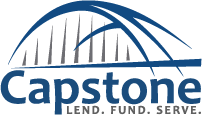Be Wary of Upfront Fees to Hard Money Lenders
Private loans work like most any other type of financing secured by real estate. A real estate investor identifies a property that is priced well under market due to its current condition.The investor applies for a private loan and the lender reviews the project and the borrower simultaneously. Yet with a private loan, more emphasis is placed upon the project and less so on the borrower. The borrower provides the private lender with a sales contract along with details regarding the rehabilitation including costs, labor and timeline. The lender reviews the application along with the rehab estimate and makes a decision regarding the loan approval. If the project makes sense and the lender agrees with the borrower regarding the final value, the loan can be approved.
A private lender typically has a short list of loans from which to choose but typically it amounts to the term of the loan, usually no more than three years, the rate the private lender requires as well as a down payment from the borrower. But one thing that borrowers should look out for when reviewing a private lender are upfront costs, specifically a deposit.
A deposit to a private lender sounds very much like an earnest money deposit placed in escrow in favor of the seller of the property. Should the buyers default on their agreement to purchase the property the buyers may lose their earnest money deposit if the deal doesn’t go through due to a withdrawal from the transaction or a bad case of “buyer’s remorse.” A deposit placed with a private lender is not like an earnest money deposit. Instead, it’s cash upfront to the private lender that the borrowers won’t get back even if the deal is declined. A deposit can range anywhere from 1-2% of the loan amount or sales price or whatever the private lender requests. For a $500,000 purchase price, a private lender might ask for $5,000 upfront. This money is non-refundable.
When a private lender requires a deposit buyers should be wary of moving further. An unethical private lender can review a loan request and make a very attractive offer with low rates, fees and a lower down payment. However, this quote isn’t binding and an unscrupulous private lender could accept the $5,000 fee and after a few days tell the borrower that after further review they rescind their original, non-binding quote and replace it with one with higher rates, fees and down payment. In this instance, the borrowers face either taking the higher cost loan or losing the $5,000.
Ethical private lenders don’t ask for such a deposit and buyers who interview several private lenders the ones with hefty deposit requirements should be removed from the list. Note, private lenders as well as conventional lenders typically ask for enough funds to pay for a property appraisal but this is standard practice. Requiring for a sizable, non-refundable deposit is not.

